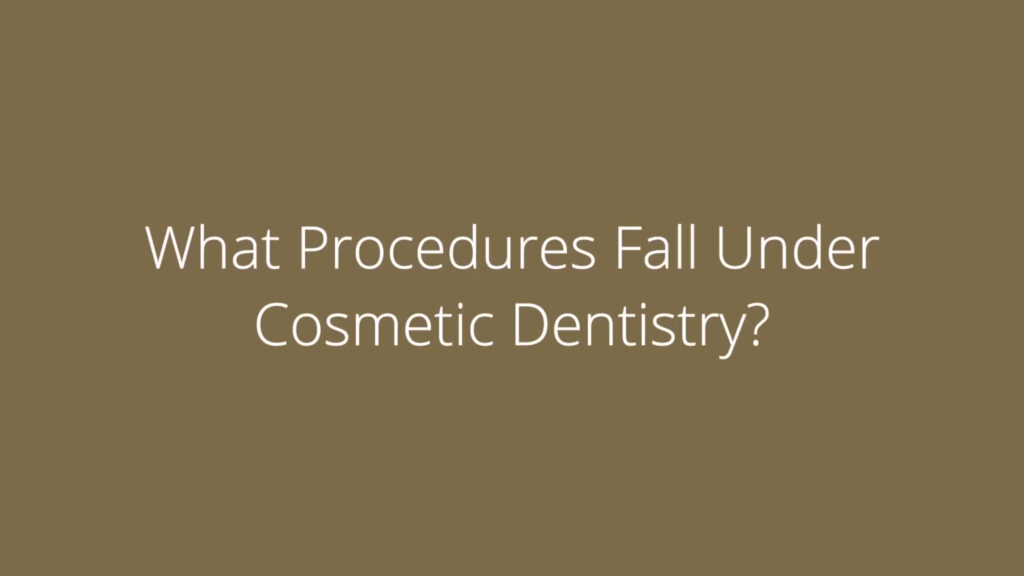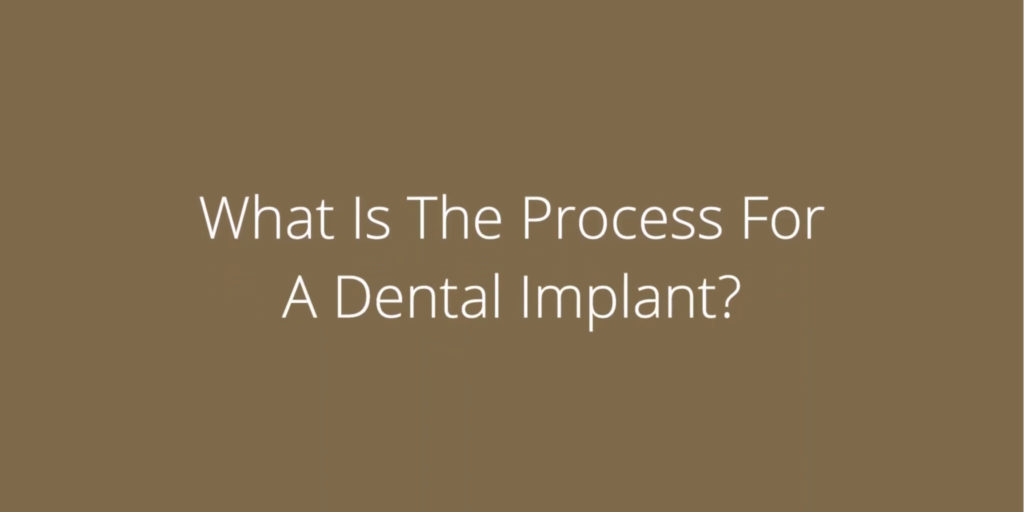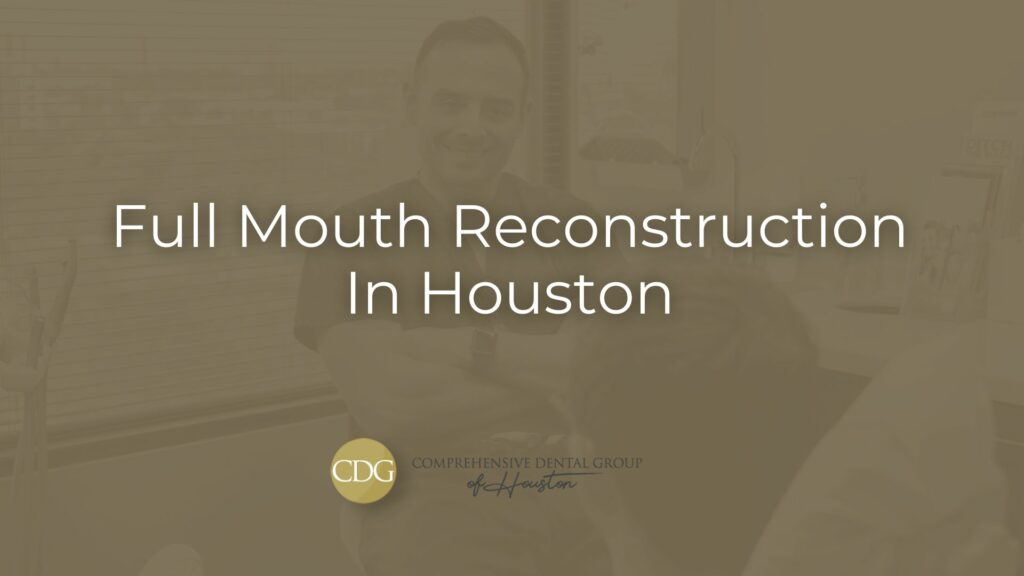What Procedures Fall Under Cosmetic Dentistry?
A: Cosmetic dentistry includes veneers, crowns, Invisalign, as well as teeth whitening.
We know that general dentistry mainly deals with the functionality of your teeth. It handles things like cavities, cleanings, fillings, and other general issues. However, what about a smile that’s perfectly healthy but looks a little off? We’re talking about aesthetic issues such as:
- Yellowed Teeth
- Slightly Crooked or Misshapen Teeth
- Chipped or Cracked Teeth
While some of the above conditions can indeed be considered oral health issues in severe cases, they are mostly superficial issues. They have no bearing on your physical well-being directly, but they can harm your emotional well-being thus indirectly affecting you physically. However, there are cases when cosmetic dentistry will crossover into the field of restorative dentistry. One of these cases involves restoring a smile through dental implants, which we’ll cover in a moment.
All things considered, cosmetic dentistry can touch up the finer points of your smile marred by minor imperfections. There are many different procedures at a dentist’s disposal to correct many of these minor issues.
A smile makeover, for example, makes use of several cosmetic dentistry procedures to perfect one’s smile. This allows a patient to get the dream smile they’ve always wanted with minimally invasive procedures in most cases.
The Different Procedures Within Cosmetic Dentistry
Cosmetic dentistry is dentistry, but with an artistic aspect. Remember, its primary goal is perfecting the appearance of your smile, not the functionality. Cosmetic dentistry is a specialized field because it not only requires the knowledge of general dentistry but also artistic aptitude.
Often it involves painting, sculpting, 3D printing, carving, and many other things you’d expect in a modeling studio, not a dental lab. But essentially, you can think of it as an art—because it is.
However, instead of painting canvas with oil, there’s painting veneers to look like natural teeth. Instead of sculpting clay, there’s moldings made of a patient’s teeth. You get the idea—it’s where the art world blurs into the dental world.
While many of the procedures in cosmetic dentistry, such as whitening, are simple, some are extremely difficult. They require a very steady hand, an excellent eye for detail, and extensive knowledge of advanced materials.
Some of the most common procedures used in this specialized field of dentistry include:
Teeth Whitening
Enhancing the white color of teeth is one of the easiest ways to make a noticeable difference in one’s smile. It starts with a deep cleaning to remove tartar and plaque built up on the teeth. Then a bleaching agent or whitening compound is applied to the teeth and polished after it sits for a bit.
It is possible, with externally stained teeth, to achieve shades of white brighter than the natural color. However, teeth that are stained from the inside, beneath the enamel can’t be corrected with whitening. That’s where the next procedure comes into play—veneers. One of the simplest ways to improve your smiles is teeth whitening. Firstly, your dentist will clean your teeth from any plaque or tartar that might have appeared on your teeth. Then he will use a bleaching or whitening solution on them. With teeth whitening, you can achieve shades that are lighter than your natural tooth color.
Dental Veneers
Dental veneers are thin, porcelain or custom resin facades crafted to hide the surface of your teeth. They are permanently affixed to your teeth using a strong adhesive—but there’s a catch.
For the veneers to look natural and remain flush with your neighboring teeth, your teeth must be shaved down a bit. This is done by grinding down the enamel surface slightly so that the veneers fit flush. This means once you decide on veneers—there’s no going back.
Fortunately, with proper care and a good cosmetic dentist, they should last 10-15 years or longer. They can only hide imperfections not correct them. So, aspects such as tooth color, shape, size, and length can be masked with picture-perfect facades.
Dental Bonding
With dental bonding, a tooth-colored resin is applied to the affected tooth and cured with UV or laser light. Once cured, it is trimmed, shaved down, shaped, and polished to match the other teeth. It is used as a way to fill in a misshapen tooth, and hide chipped or cracked teeth.
Dental Implants
Dental implants are an area of cosmetic dentistry that blends into the realm of restorative dentistry. This is mainly because dental implants not only fix the appearance of your smile but restore function. Unlike veneers or bonding, implants actually correct the problem.
However, since implants are handcrafted to look indistinguishable from natural teeth, there’s a high level of artistic skill needed. Additionally, since it does everything cosmetic procedures can do and then some, it can be classified as more than just cosmetic.
Dental implants are biocompatible titanium posts that are implanted into the jawbone where teeth have been extracted or decayed. These implants bond with the jawbone preserving it from disintegration which happens when there’s no tooth to stimulate it.
The titanium implants then have an abutment permanently attached as well as a lifelike restoration on top. They’re indistinguishable from natural teeth.
Teeth Straightening
This procedure also blurs with orthodontics in some cases as there’s several ways to straighten teeth. In most cosmetic dentistry cases, teeth that only need minor straightening employ a cosmetic dentist. More serious bite issues and alignments require traditional metal braces.
Invisalign is one of the procedures that is meant for minor alignment issues. Rather than the invasive nature of metal braces, it uses plastic retainer trays. These trays are given to the patient to take home and they are graduated in effectiveness.
The retainers are made of clear medical-grade plastic that helps pull your teeth gently into position over time. Usually done over a year or more, it’s a very popular procedure among adults who don’t want the metal braces.
Just like with regular braces the adjustment must be continually maintained long after you achieve results. However, it’s a far easier process than traditional metal braces.
How Cosmetic Dentistry Benefits Your Life
With the help of cosmetic dentistry, you can improve your smile while also improving your dental health. The only way you can get maximum value from your investment in a procedure though; is to follow through.
If you do, your cosmetic dentistry procedures can give you the smile you’ve always wanted and benefits many never know about:
- Improved Dental Health – While your appearance is improved with cosmetic dentistry it can in some cases also prevent future dental issues. For example, dental implants protect the jawbone and any remaining teeth. Cosmetic procedures alongside your regular checkups and good oral health routines will improve dental health.
- Healthier Diet – When you have a damaged or missing tooth, it can hinder your ability to properly chew food. This can mean nutrient deficiencies and issues that arise from that. However, many cosmetic procedures can improve that.
- Better Finances – Many cosmetic procedures have the benefit of preventing further damage to your teeth. This can end up helping you prevent much larger dental issues that require complex and expensive treatments.
- Improved self-confidence – A bright and healthy smile goes a long way towards boosting your self-confidence. Having a higher self-confidence impacts every aspect of our lives.
Get The Smile You Deserve From CDG
Whether your broken smile is something that only requires cosmetic help or a full restoration, we can bring it back!
Contact us today for your free consultation and let us show you how we can make you smile again!









